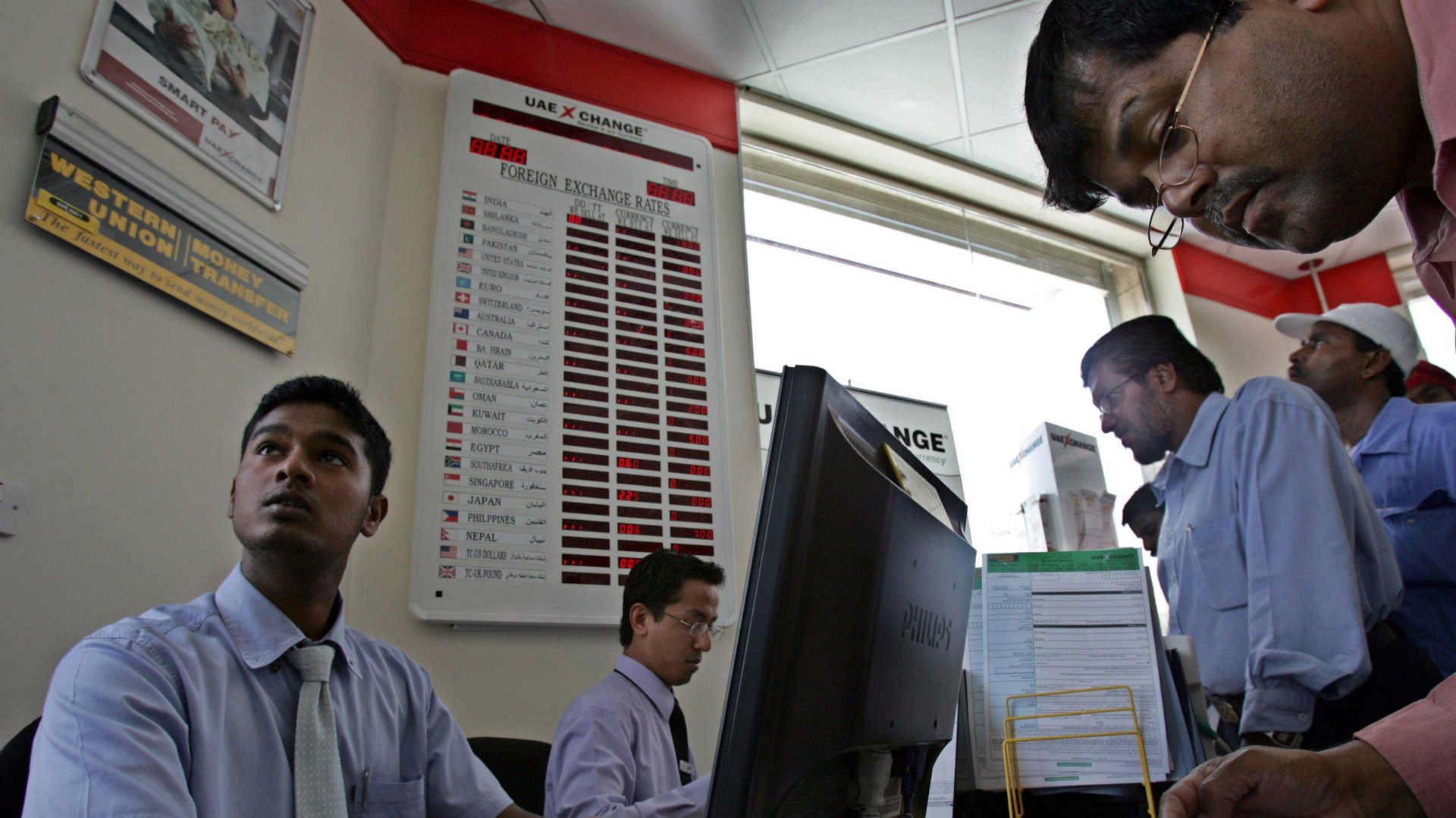Facebook’s first funder just backed TransferWise, a startup that’s like an ancient Islamic money transfer system
Peter Thiel is known for his canny investments. He was the first outside investor in Facebook, and look how that turned out. So it is cause for excitement in British tech circles that the first European investment by Thiel’s Valar Ventures is in TransferWise, a London-based start-up that hopes to do for remittances what Skype did to long-distance dialling. That analogy is particularly apt because Taavet Hinrikus, a co-founder, was an early Skype employee. And Thiel knows his way around online money transfers; he co-founded PayPal.


Peter Thiel is known for his canny investments. He was the first outside investor in Facebook, and look how that turned out. So it is cause for excitement in British tech circles that the first European investment by Thiel’s Valar Ventures is in TransferWise, a London-based start-up that hopes to do for remittances what Skype did to long-distance dialling. That analogy is particularly apt because Taavet Hinrikus, a co-founder, was an early Skype employee. And Thiel knows his way around online money transfers; he co-founded PayPal.
Here’s how TransferWise works: Nikos, a Greek migrant in London, pays £100 pounds to the web-based service via his British bank or debit card and asks for it to be sent to Athens, where his brother lives. TransferWise’s algorithm finds someone in Greece, let’s call her Alexa, who wants to send money over to London. She’s put her funds in as well. TransferWise takes the cash out of its own British holdings and sends it to Nikos’s bank account. Its arm in Greece does the same for Alexa. Presto: everybody’s got their remittance and the involvement of banks remained strictly domestic.
The beauty of TransferWise is that it almost entirely bypasses banks, which use every opportunity to wring out every last cent from overseas transfers. While it is relatively easy to move money within the EU—the key word being relatively—getting it over more consequential borders can be expensive and time-consuming. Banks charge hefty fees, convert at rates favorable to themselves, and tend to ask questions.
The service differs from Western Union in two ways: it relies on other people’s money to build its corpus rather than its own, and it is significantly cheaper: a ridiculously low £1 or €1 for payments up to 200 in either currency. Fees go slightly higher for bigger sums and become more complicated with other currencies. Still, it transferred £10 million ($16 million) in 2011, its first year of operation, and a cumulative £125 million as of today, which TransferWise says saved its customers £5 million in fees.
The same two elements are what make TransferWise so similar to hawala, a system of money transfer used throughout the Islamic world, including South Asia. Hawala operators have a network of agents across the region in which they function. A customer—call him Ahmed—goes to a hawala agent in Dubai and asks him to send 10,000 rupees to Karachi. A quick phone call later, the designated consignee in Karachi, Faiz, can visit his own agent and pick up the equivalent in dirhams, minus a small fee.
How does the Karachi agent know whom to give it to in the absence of computers and log-ins and algorithms and such? There are many ways, including verbal passwords, but one of the most elegant is the banknote system. Ahmed calls his friend Faiz and asks him to fetch a 10 rupee note. Faiz reads out the serial number on the note to Ahmed, who tells his agent in Dubai, who in turn passes the information to Karachi. The Karachi agent will only hand over the money to somebody carrying the very same 10-rupee note.
TransferWise and hawala are simple and smart ways of getting money across borders without the hassles of dealing with banks’ labyrinthine rules and fees. But there is one significant difference. Hawala has no written records and is based entirely on community ties and personal trust. TransferWise on the other hand logs details of its customers and adheres to regulations. Its biggest problem at the moment is scale—the system is hard to make work when certain countries, such as Haiti or the Philippines, receive far more than they send. That, presumably, is what the $6 million round of funding led by Thiel will help solve. The only question is how TransferWise’s American backers will send over the cash.